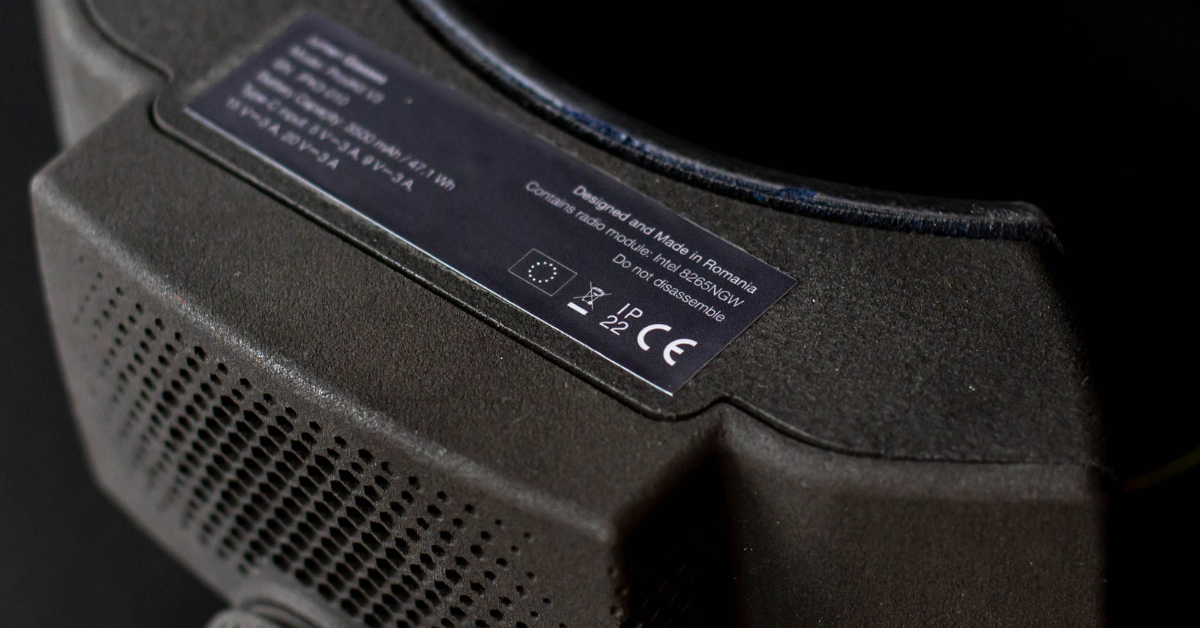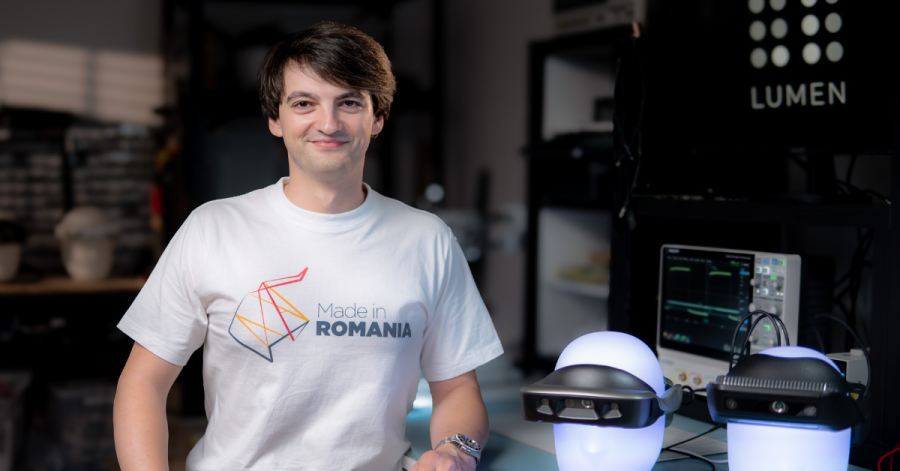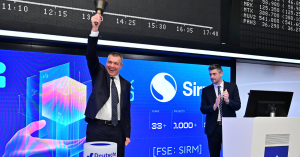.lumen, a Romanian deep tech company developing assistive wearable technology for the visually impaired, has recently obtained the CE certification for its .lumen Glasses. The certification marks a significant regulatory milestone and clears the path for the product’s launch in the European market later this year.
Founded by Cornel Amariei, .lumen is building its technology around PAD AI (Pedestrian Autonomous Driving), a proprietary system that adapts principles from autonomous vehicles to pedestrian navigation. The glasses are designed to help visually impaired users navigate their environment more safely and independently, using a combination of sensors, haptic feedback, and artificial intelligence.
How to obtain the CE certification
The CE marking—mandatory for products entering the European Economic Area—indicates that .lumen Glasses comply with all relevant EU safety, health, and environmental protection legislation.
“If you’re a deep tech startup in Europe, especially building hardware, the CE stamp is basically your access card to the market,” said Amariei. “It’s proof that your product complies with all EU safety, health, and environmental protection standards.”
The certification process involved passing more than 200 physical and technical tests and complying with over 1,600 specific requirements. Amariei noted that “over 80% of electronic devices fail on the first Electro-Magnetic Compatibility (EMC) tests—we passed from first try, but we were lucky.”

The timeline for the certification
To expedite the process, the company developed internal testing infrastructure and procedures, which it now plans to reuse for future regulatory approvals.
“There’s no one-size-fits-all timeline,” he said of the certification process. “For some simpler consumer electronics, certification might take just a couple of months. For more complex devices, it can stretch to longer timelines—there are medical devices needing 5 years+.”
While timelines for CE certification vary depending on the complexity of the product, .lumen’s approach to hardware development helped accelerate the process. The team conducted most of the validation work in-house—a capability that remains rare in Central and Eastern Europe. In Romania, only a small number of laboratories are accredited for CE testing, and few hardware startups in the region have navigated this level of compliance.
“To understand the market, there are only three labs in Romania that are accredited for EMC testing, for example, and they don’t seem very busy. That tells you how early we are in building this kind of competence locally.”
Medical device certification on the horizon
.lumen Glasses have been certified as a consumer electronic device, but the company is already preparing for medical device certification, which introduces an additional layer of regulatory scrutiny, including clinical investigations and stricter manufacturing requirements. Amariei noted that the company’s technology stack—hardware, software, and usability engineering—was designed from the outset to meet medical-grade standards.
“The good news is that our hardware, software, and usability engineering were already developed with that bar in mind. The main shift is in manufacturing—medical devices must be produced in accredited facilities, and we have partnered a long time ago with a certified one.”
The importance of patents
Beyond compliance, .lumen’s strategy places strong emphasis on intellectual property. The company holds four US patents, extended to international coverage in up to 70 countries. These cover key elements of the PAD AI system, including environmental understanding algorithms and the glasses’ haptic interface, which guides users by gently shifting their head orientation—an approach inspired by the function of a guide dog.
“In deep tech, patents are not optional. They secure your defensibility and enhance your valuation. And yes, they’re quite expensive—one international patent can cost upwards of €80,000. So you have to be strategic: patent what’s core, and in countries where production or distribution actually matters.”
Embracing regulation in the age of AI
The company is also closely following regulatory developments around artificial intelligence. Amariei views the upcoming EU AI Act as a necessary framework for establishing responsible development practices.
“AI Act is a good thing in my opinion. It finally sets a minimum threshold of responsibility in AI development. Today, too many think building AI means tweaking a GPT model or copying code from StackOverflow. For the first time, the EU says: ‘You need processes, standards, traceability.’”
First units in production, commercial launch in sight
Production of the first CE-certified batch of .lumen Glasses is currently underway, with 50 units being manufactured and piloted across several countries. Each pair includes over 1,000 components and is subject to strict quality control. The company plans to launch commercially in Romania in Q4 of 2024, with a broader European rollout to follow. Entry into the US market is scheduled for late 2025.
To support these efforts, .lumen recently raised €5 million in funding from Catalyst Romania, the European Innovation Council (EIC) Fund, Tigrim Capital, and SeedBlink. The company’s goal is to sell 10,000 units by the end of 2026.
While the European hardware startup ecosystem remains relatively small, .lumen’s path offers a case study in how companies from the region can navigate complex technical and regulatory challenges to bring deep tech products to market.
“Don’t avoid hardware just because it’s hard. It is. But it also makes it harder to fake. In software, you can prototype nonsense and still raise money. In hardware, there’s no shortcut—you either build it right or it doesn’t work.”
As .lumen continues its path toward commercialization, the CE certification signals readiness to operate in mature markets, where safety, quality, and scalability are essential prerequisites.








